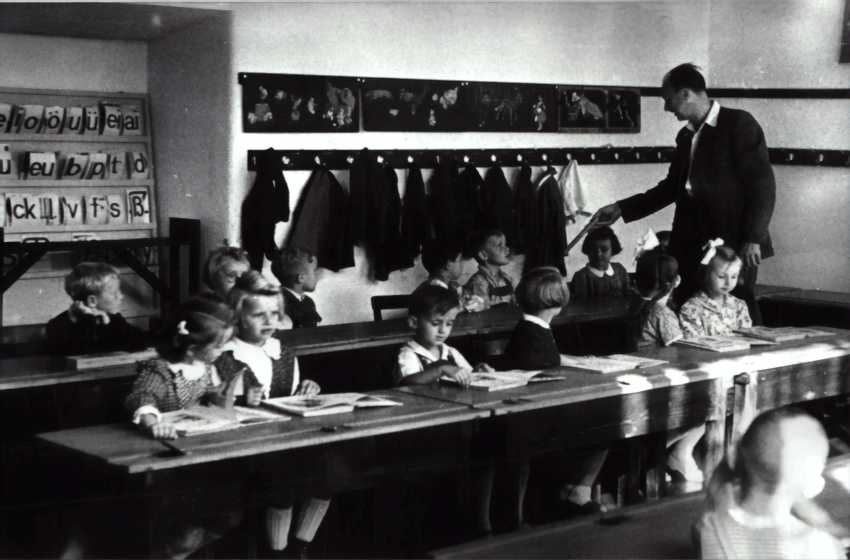Everything around us is a product of invention. And evolution is the fact of humankind. The only thing probably that was not invented but evolved through the ages, is education. Born before apes became humans and will perish only with the latter’s extinction.
Education started with being a process of acculturation. When humans walked on four legs and were learning to stand erect, since then it has been a significant part of life. It was a method of transferring cultural norms, social values and traditions, moral codes, religious ethics, knowledge and skills to the next generation. This Oral Tradition based itself on observation and imitation. Children incorporated what they saw and became experts. Education was a personal experience. The Hunter- Gatherer society was simple and had a social set up with no divisions or hierarchies. Families were small and lived in close groups, protecting each other and collecting food. Thus the education system was also simple. Ancient cave paintings with crude drawings of a hunt, houses, tools used, etc, tell us what was imparted to kids. Education centered around legends, folklore, rituals and songs delivered usually in poetic form.
Advent of agriculture graduated humans to the next level of development. With agriculture, settled or sedentary lifestyle became the norm. In the previous stage, there was no requirement of specialization. But agriculture brought in special skills. People gained expertise in one or the other craft. Contrary to the common knowledge base of hunters, agriculturists had varied skills. Thus education apart from consisting of tradition and culture, also included learning of a special art. Education became formal and with it started being restricted.
As the agriculture society grew, it saw the introduction of various professions. Knowledge became even more specialized. Society gave birth to the system of complex hierarchy. There was need for protection and with this the requirement of a king to reign over his subjects. Thus the political institution led to social stratification. By this time god had also been invented and so a priest class existed too. Division in the society compartmentalized education. Informal transferring of family heritage continued but formal education got restricted to the upper classes. Th kings and priests were entitled to it alone. Women were kept out of its purview. So were slaves. Formal education consisted of learning of literature, hymns, epics.
Writing was introduced much later to augment education. Initially it was a means of keeping accounts. It was short and numeric. Alphabet was invented at a later stage. Signs and symbols were incorporated to create meaningful letters. With the invention of writing, stories, poetry, knowledge, customs could be recorded. A definite and accurate data base was created that could be easily transferred across generations without alteration and deletion of essential facts.
In India, the break up of society led to the emergence of the caste system. Initially a professional divide, this soon turned into a rigid exploitative barrier that demarcated the society. The caste system comprised of the Brahmin (priest), the Kshatriya (ruler), Vaisya (businessman) and the Sudra (lowly job) classes. Formal education was confined to the upper three castes. The Sudras were deprived of it. So were women (except some). The Indian educational system revolved around the Gurukul system. Gurukul meant a teaching institute run by a Brahman. It was open for Brahman children and sons of Kshatriyas. The syllabus consisted of learning the Vedas and other religious scriptures. Martial arts training, ethics, philosophy, literature and science was part of the course.
The introduction of formal education lent it a narrow base. Society got classified into the literate and illiterate. Informal training and imparting of cultural and traditional knowledge did not become non-existent, but insignificant as far as a person’s qualification was concerned. Even today, formal training defines education. It is unfortunate that because of this trend the age old tradition of passing on values and knowledge to the future generation is dying out.
Education was born when life itself took form. It includes more than we can perceive. It is not a requirement but a necessity. If food, clothing and shelter are the requisites of living, then education is the unseen component that binds itself to us with or without our consent. To detach ourselves would mean extracting a part of us without which we can never be complete human beings.

